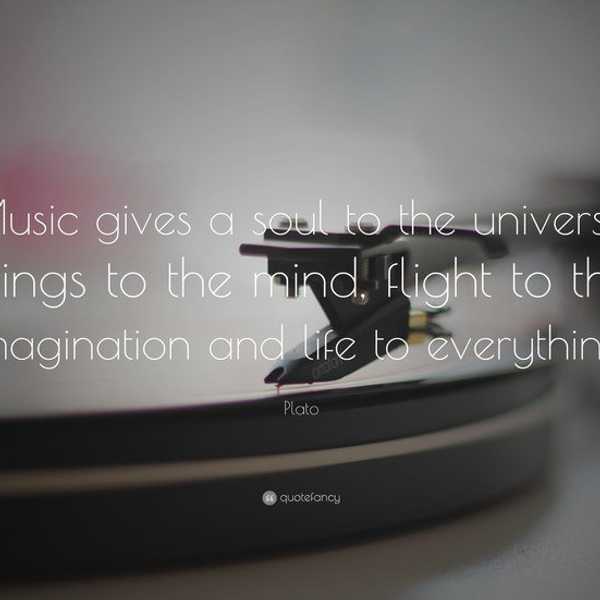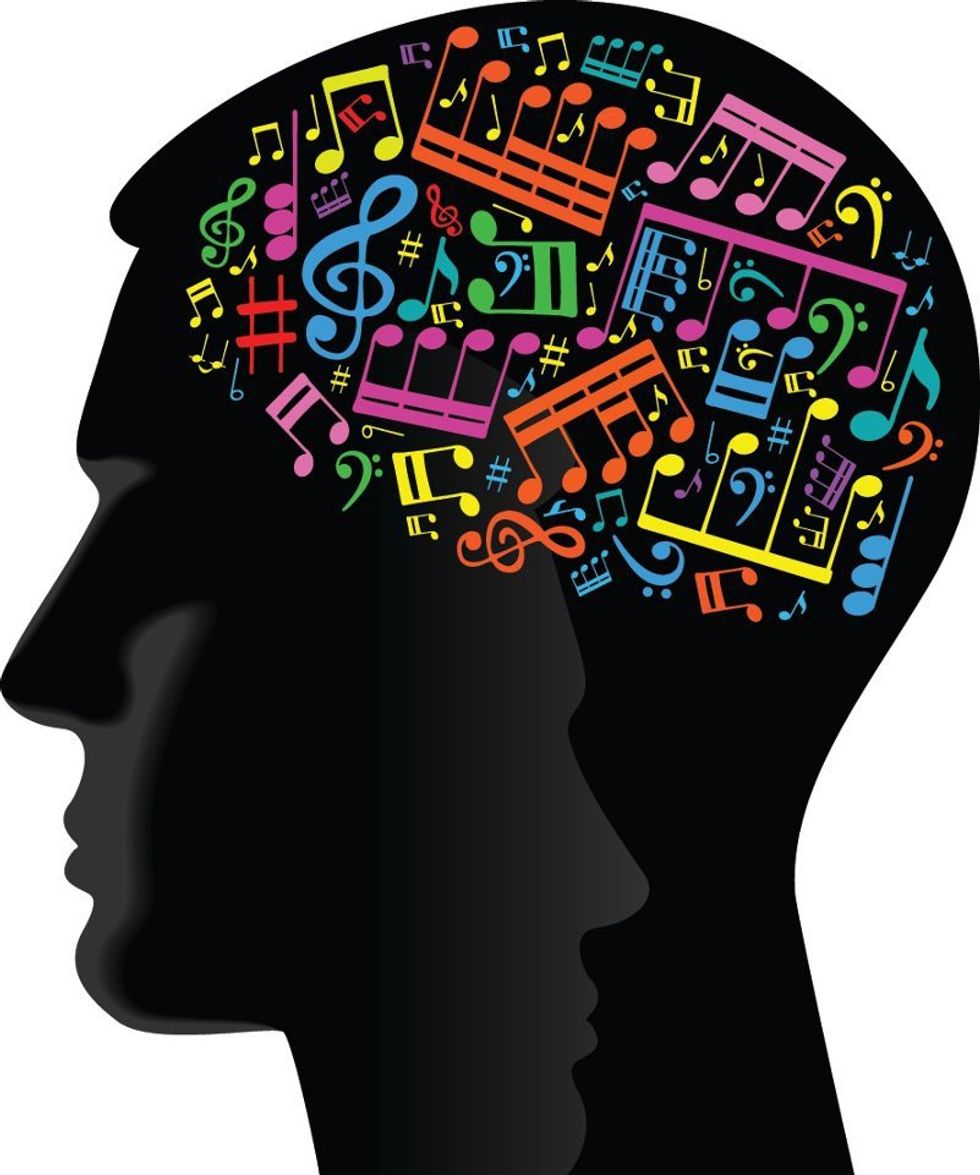Music is so universal that almost everyone listens to it. Every known culture in the world has music. It is a form of art and a way of expressing emotions without words. It has been proven that music influences humans both in good and bad ways, and people perceive and respond to music in different ways. There are many bodily responses to music such as strengthening or weakening emotions from a particular event (such as at a funeral) or affecting people’s memory.
The influence of music on society can be seen clearly from modern history. Thomas Jefferson played the violin for hours at a time while in the process of writing The Declaration of Independence to help him relax enough to write. Albert Einstein, recognized as one of the smartest men who has ever lived, was very fond of music as well and played the violin and piano. Not only was music relaxing to Einstein, but it also helped him with his work on his theories. He would go back and forth from working on a theory to playing a few chords on the piano, jotting something down and then returning to his study. In both cases, music has influenced these well-known people in history, specifically helping them to focus and relax when trying to perform a task.
A number of studies have indicated that listening to Mozart's work may temporarily increase cognitive skills however other studies have found no significant effects. “The Mozart Effect” is a study that includes various hypotheses suggesting that listening to Mozart’s music can increase your intelligence, help you with short-term improvement on certain tasks, or that listening to classical music in early childhood has had a beneficial effect on mental development. This was first started by Dr. Alfred A. Tomatis in his 1991 book, “Pourquoi Mozart?” and talked about how classical music stimulates the brain.
It has been found that slow music can slow down your heartbeat and the breathing rate, plus bring down blood pressure. The brain can respond in different ways based off of the order of the music such as from the Baroque and Classical periods. This includes repetition and changes, certain patterns of rhythm, and pitch/contrasts in mood, and all this causes the human mind to perform better when listening to this order of music. King George I of England had problems with memory loss and stress management so he read from the Bible the story of King Saul and recognized that Saul had experienced the same type of problems that he was experiencing. George recognized that Saul overcame his problems by using special music. With this story in mind, King George asked George Frederick Handel to write some special music for him that would help him in the same way that music helped Saul. Handel wrote his Water Music for this purpose- one cannot deny the power of music.
In a recent survey that I created online, I asked friends, family and peers (through Facebook, email and other social media) to answer the questions I asked them. I had surveyed a hundred people of all different ages and from different areas, depending on who took the survey. In my data analysis, eighty-three percent of the people said they listen to classical music, or sometimes listen to it. The next question I asked was how often they listen to classical music and most wrote in answers of once or twice a week and some never listening to classical music at all. Of the hundred people surveyed, sixty-two people said they found classical music helped them focus when performing a certain task. The other thirty-eight people didn’t find classical music to help them focus when performing a task, most adding on that it is actually distracting for them. Forty percent said that they found classical music to be the most relaxing genre of music. The reason I created this survey was to see how connected my friends, family and peers are with classical music.
There are many benefits to listening to classical music. One benefit is that it helps you increase physical performance. When you’re working out, music can make you cycle harder, run faster, boost your endurance, and sometimes improve your overall motivation about exercise. Another benefit is that music can help you get the quality sleep that your body needs because it helps you to relax your body physically while calming your mind. “College students affected by insomnia showed improvement when they substituted random sleep aids with forty-five minutes of classical music therapy” (Health Wire). Classical music has also helped ease chronic pain naturally. People in recovery from surgery, dealing with disability, etc. have been helped to reprogram the brain to focus on the music rather than the physical pain.
Classical music has been proven to improve mood and lower stress. If you are feeling anxious, sad, or out of control, taking a few minutes to stop for a little while and listen to music has helped to control those emotions. Studies have found that it has the same physiological effect of a massage. This technique causes positive chemical reactions within your brain that help with symptoms of stress and depression. But avoid listening to hard music or club beats if your emotions are chaotic since science has proven that they can sometimes make a bad situation worse emotionally. In Germany, they are testing the use of Mozart to lower driver aggression on the nation’s highways.
While there is not a definite answer yet, those trained in the science of the mind and behavior, and other scientists, are slowly beginning to develop theories as to why music might have an effect on intelligence. If anything, classical music has been proven to change some ways our bodies function, and has some effect on how we react to it, based off of studies of many different subjects. Why do we listen to music? We listen for entertainment, relaxation, to tell a story, etc. and so we’re all using music to affect our emotions. The music does affect us even when we don’t realize it. Since music is so universal, even the person reading this article has most likely listened to music and their brain has made some sort of reaction no matter what the music was.




















